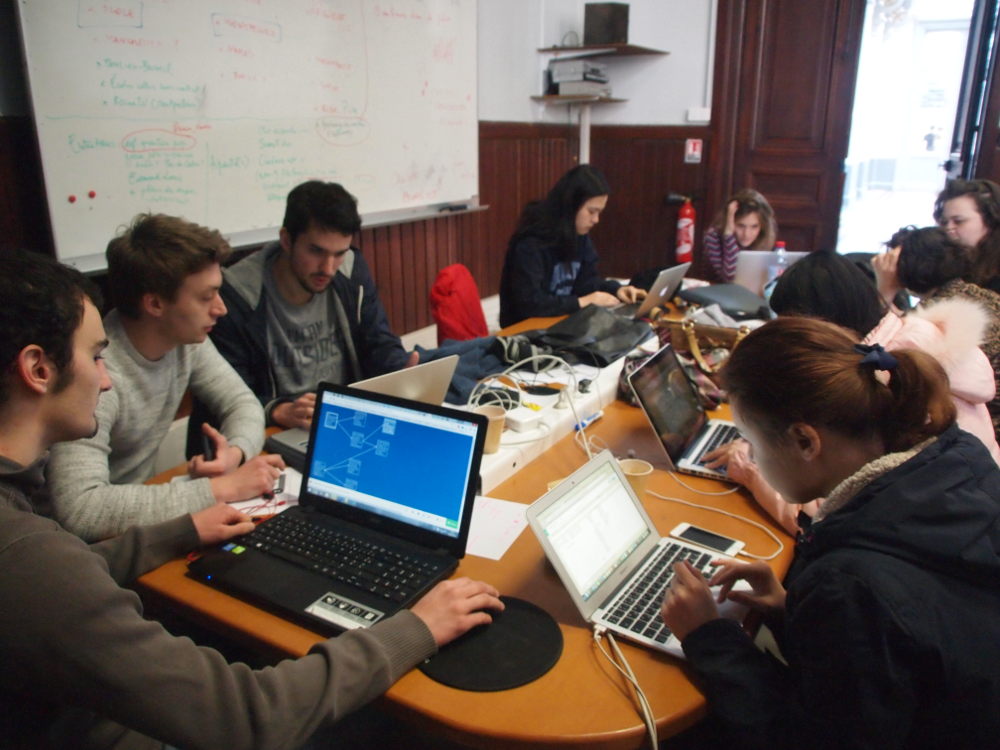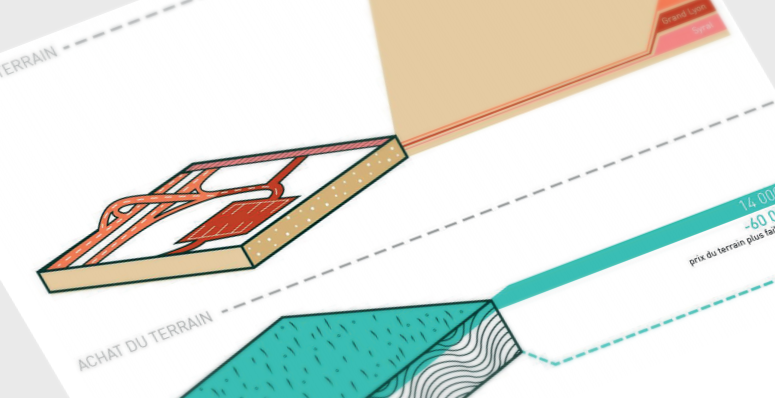Turns out people love to investigate public spending (if you do it right)
Mar 7, 2016
A post by Nicolas Kayser-Bril of Journalism++
Budgets are said to be dry and boring. And require impossibly high skills in accounting to understand. Or so we thought. It turns out that budgets can be made exciting. But you need to get it right.
At Journalism++, we have experience training journalists and others in data literacy and data visualization. Over the last 5 years, we’ve conducted about a hundred trainings. Our sample datasets range from weather data to airplane crashes. Down-to-earth, easy-to-digest concepts. We had never tried to use budget data in a training context before.

Investigating public budgets in Lille, France.
Our mission in OpenBudgets.eu is to make sure European journalists and citizens use the budget data on the platform. We set out to conduct a series of workshops on data-driven investigations focused on local budget data. So far, we conducted 3 workshops in Switzerland and France, as part of The Football Tax, an investigation on the public funds spent on professional football. This article explains how we did it, what worked and what didn’t.
Think hard about the topic
We always ask participants to investigate what public bodies give to a specific professional football club. We had 4 selection criteria for this investigation:
1. The topic had to be European, so that we could use it in workshops around Europe (except for Finland and the Baltics, pretty much everyone in the EU loves soccer).
2. The topic had to involve several administrative layers. Stadiums in particular are paid for by everyone, from the local level all the way to the EU.
3. The actors involved had to be clearly identifiable and the amounts significant.
4. The topic had to be relevant for journalists.
It was hard to find a good candidate. Many topics that are extremely relevant, such as education, are hard to investigate because schools are rarely distinct entities (a teacher’s salary can be paid by the state while the building belongs to the city). The state knows how much it spends in salaries overall, the city knows how much it spends on school buildings overall, but it’s impossible to know how much is spent on a particular school. Other topics, such as the Common Agricultural Policy, involved just one layer of administration (the European Commission). In the end, football subsidies proved one of few possible candidates.
Introduce the topic in an exciting way
When you announce to a group of 15 20-somethings that they’ll work on public finance, you’ll get 15 disappointed Oooohs. When you tell them that they’re going to nail the bad guys, they cheer up. On the topic of stadiums, we started by showing them a video of comedian John Oliver (watch here), who did a similar investigation in the United States. While the video is hilarious and did a good job at lifting spirits, it also gave false hopes and set the wrong frame (we needed Europe, it was the US).
We now introduce the topic by giving a few outrageous examples of previous findings. Kudos to the city of Bordeaux, which provides us with our best example: A middle-age château owned by the city, together with a 10 ha domaine, is rented to the local football club for 1,200€ per month, the price of a small flat downtown. This usually hits a nerve. Watch a video tour to get the picture.
Provide the basics
Our trainings last 2 or 3 days. We give participants a crash course in public sector accounting in less than 2 hours. We wrote a short tutorial (read it here and keep in mind it’s a work in progress), which we print on paper so that participants can write on it.
Once the tutorial has been read and discussed, we provide participants with a country-specific methodology (read it here in English).
The accounting tutorial and the methodology provide the foundations for the rest of the workshop.
Know the topic inside out
Accounting is hard. Intricate concepts pop up all the time. You must have enough experience in the field you send your participants on to answer their questions rapidly. You also need to be able to tell them what to look for.
Have fun, collect feedback and expose wrongdoings
At each training, we collect feedback from participants. It helped us refine our tutorials and our methodology, as well as the onboarding (i.e getting participants excited).
More importantly, some participants had fun looking for public money. Many of them told us that they were surprised how many stories were hidden in public deliberations of city councils (and how hard city councils were fighting to keep them secret). And almost all of them know now that money flows are to be found in income statements and money stocks in balance sheets.

Visualization by a participant at the Strasbourg workshop
A few stories emerged from the workshops, as well as new ways to visualize and communicate public spending. Some participants built a game to explain how the football club of Sedan, France, claimed public subsidies (Lille workshop). At the design school of Strasbourg, participants explored new types of infographics for budget data. All these innovations will let us build new tools and design better training curricula so that even more journalists in Europe scrutinize local public spending and fight corruption.
Want to run a workshop on public money flows?
Drop me a line at nkb@jplusplus.org!
